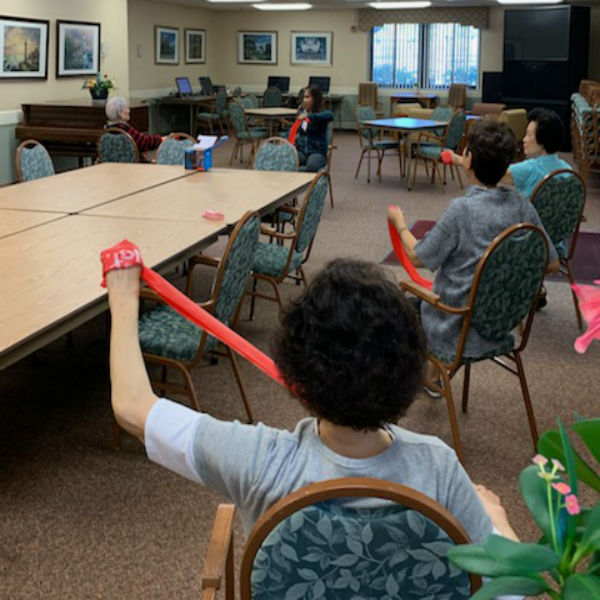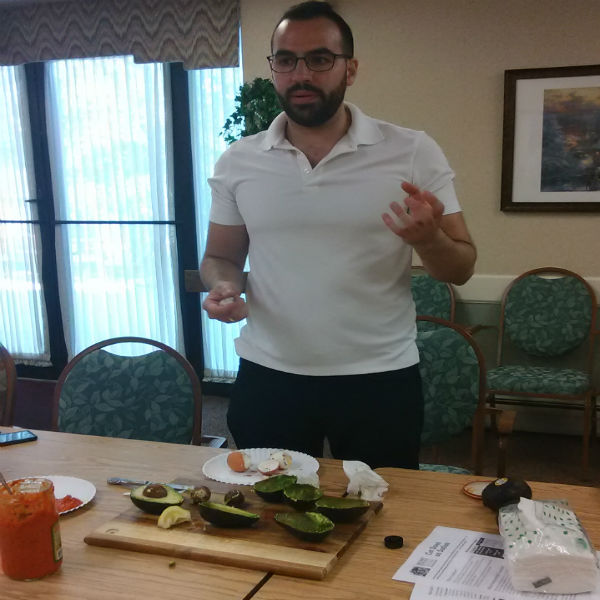
“An ounce of prevention is worth a pound of a cure.” Though that saying is credited to Benjamin Franklin nearly three centuries ago, it remains just as true today. According to the CDC, chronic illnesses like diabetes, heart disease, and cancer account for 75 percent of U.S. spending on health, not to mention individual costs that far too many people often cannot afford to pay. Seniors, in particular, may avoid medical visits altogether (until urgent health matters present themselves) because they anticipate the discovery of medical conditions they cannot afford. This epidemic is cyclical in nature and, unfortunately, the cost is detrimental to far more than just finances.
This is just a broad look at the current landscape seniors must navigate during the later chapters of their lives, with issues like homelessness and poverty at the forefront. Embrace Living Communities is working with various partners who are familiar with these types of issues facing the aging population and are well-equipment to face them.
The HUD-funded iWish pilot program has many branches with an overall goal of senior health and wellness. One such partner is with the JCAHO-accredited, 4.5 star Medicare-certified organization, Crystal Home Health, who’s preventative approach to wellness is keeping many Embrace Living Communities residents out of the hospital and in good health.
About four years ago, a mutual connection formed between corporate office members years prior, finally culminated in the establishment of an incredible partnership between Embrace Living Communities and Crystal Home Health. Despite the time it took to develop, the partnership is a rather natural one.
“Embrace Living Communities, first and foremost, is a faith-based organization set out to provide good quality services to their residents. Our mission mirrors that, where we are also there to provide optimal healthcare to residents,” says Crystal Home Health Program Coordinator Pritesh Patel. “We’re the arm that brings in those services.”
Activities like strength training and balance exercises are led in structured groups, with an emphasis on preventing falls – a leading reason why seniors end up in nursing homes. Using the widely known Otago method, instructors lead exercises in a group setting, building strength or balance incrementally per session. If someone has had a fall, Crystal Home Health will take a holistic approach in determining the reason for the fall – (i.e. environmental, linked to medical complications, or due to a loss of strength or balance) – and approach them one-on-one to determine if they qualify for home health services.
Exercise and physical therapy is just one aspect of the many preventative services this partnership offers. These services are specifically designed to address the issues that seniors may face, and include nutrition classes and cooking demonstrations with healthy, affordable ingredients. These classes also allow those with specific dietary needs to be accommodated. Education is tailored around chronic diseases seniors may be affected by like heart disease, diabetes or depression. Having a background in working with aging populations, there’s a full understanding of the obstacles that make it difficult for them to receive the care they deserve.
“A lot of times seniors will not seek out help unless it’s available to them. And with the iWish program, it’s allowing them to have skilled nurses there to identify what needs to be addressed through various wellness programs, whether it’s physical or mental,” says Patel.

Pictured: Nutritionist Demetri Dongas leading a nutrition class cooking demonstration for residents at Embrace Living Communities.
Though one challenge to senior wellbeing is simply lack of access to programs that accommodate them, another is less straightforward. Along with the general tendency to become more isolated with age, there’s a specific apprehension seniors may have to share the things that are going on with their health. If there’s a physical change in the level of their health, they fear they’ll be removed from their living space to be placed in a nursing home and, unsurprisingly, seniors do not share their health issues until it’s too late. But despite the challenges of senior participation, it would seem that older adults are more than willing to take advantage of opportunities to improve their health, when given the access and the option.
At the Patten House of Glenview community in Glenview, Illinois, classes are well-attended and looked forward to. “Our physical therapist, Jessa, is going on vacation for two days next week and the residents are already missing her,” says Social Service Coordinator, Sandie Nielson. “We have a good following, with lot of regulars. Sometimes people who aren’t regulars pop in because they happen to be home. So I find that because there’s no pressure involved with them making that decision, it works so well because everyone wants to be there.” Patel echoes the sentiment: “recreational activities are used to encourage them to participate more as a group, but the beauty of this program is that encourages them to participate at their own preference of their own level.”

Pictured: Physical Therapist Jessa May Kajin, leading Embrace Living Communities residents in a ‘Balance and Strength’ class, which occurs every Tuesday and Thursday for 45-minute sessions.
Operating in three communities – Patten House of Glenview, Greencastle of Morgan Park & Beverly, and Greencastle of Kenwood – Crystal Home Health is working with Embrace Living Communities to widen seniors’ access to this preventative care, and with just about six months of operation within these communities, the program is already becoming an essential part of residents’ lives. With the ultimate goal of expanding Crystal Home Health’s services to each location of Embrace Living Communities, this partnership is slowly working toward widening its already prominent impact. Beyond helping seniors avoid costly medical injuries from which they will struggle to recover, this partnership fulfills a deeper mission: giving seniors the confidence, tools and access to be proactive about their own health.
Feel free to contact us for any future resident, current resident, or general inquiries.